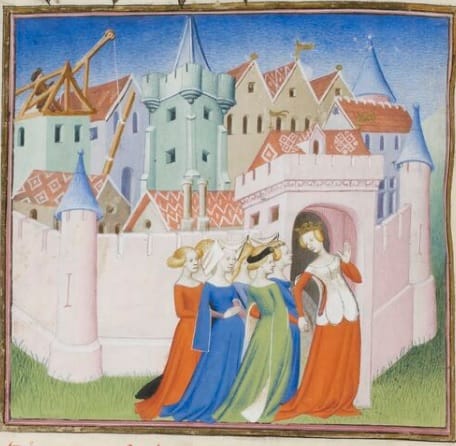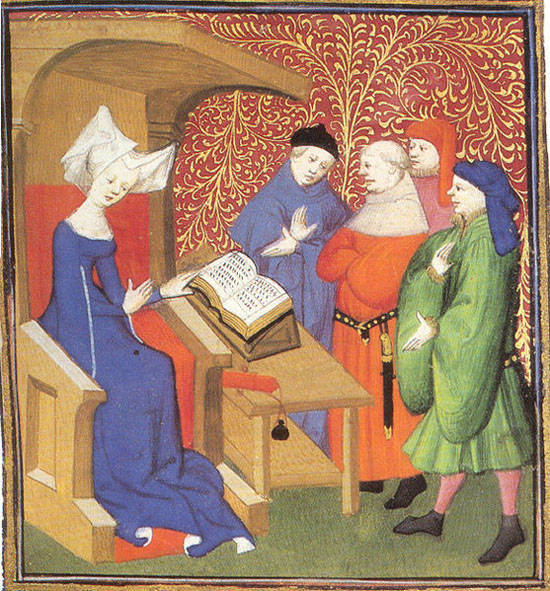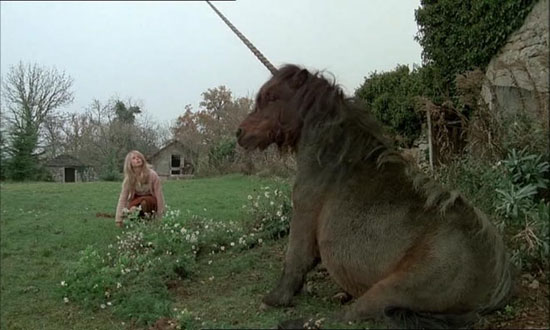Christine de Pizan’s 'City of Women'

Christine de Pizan was born in Venice (her father was from Pizzano, not Pisa), but she spent most her life in Paris. Her Le Livre de la cité des dames or City of Women was first published in 1405.
The title and theme of the book are derived from St. Augustine’s City of God and Boccaccio’s On Famous Women and it anticipates Thomas More’s Utopia of 1516 and María de Ágreda's Mystical City of God (1660). Fellini satirized it in La Città delle donne (City of Women), his film of 1980 starring Marcello Mastroianni. Christine de Pizan would have hated it.

By the age of 25 she had lost her husband and was left with three small children and a household to manage, so she had valid reasons for taking offense at the way women were portrayed in literature. This extended to both the courtly love poetry of Eleanor’s era and the sarcastic mockeries of the century that followed, both of which can be found in the famous courtly love poem The Romance of the Rose.
She was a versatile and prolific writer, which is how she managed to make ends meet financially. No shrinking Rosamond, throughout her life she was as interested in the laws of war, including how to conduct a siege and what to do with prisoners-of-war, as she was in childhood education. Toward the end of it she wrote in patriotic praise of Joan of Arc (1429).
The above works remind me of the almost-unseen Louis Malle film of 1975, Black Moon, which is set in a time of war between men and women. It is surrealistic and fantastical, rather like a dream, as this publicity still would suggest:

